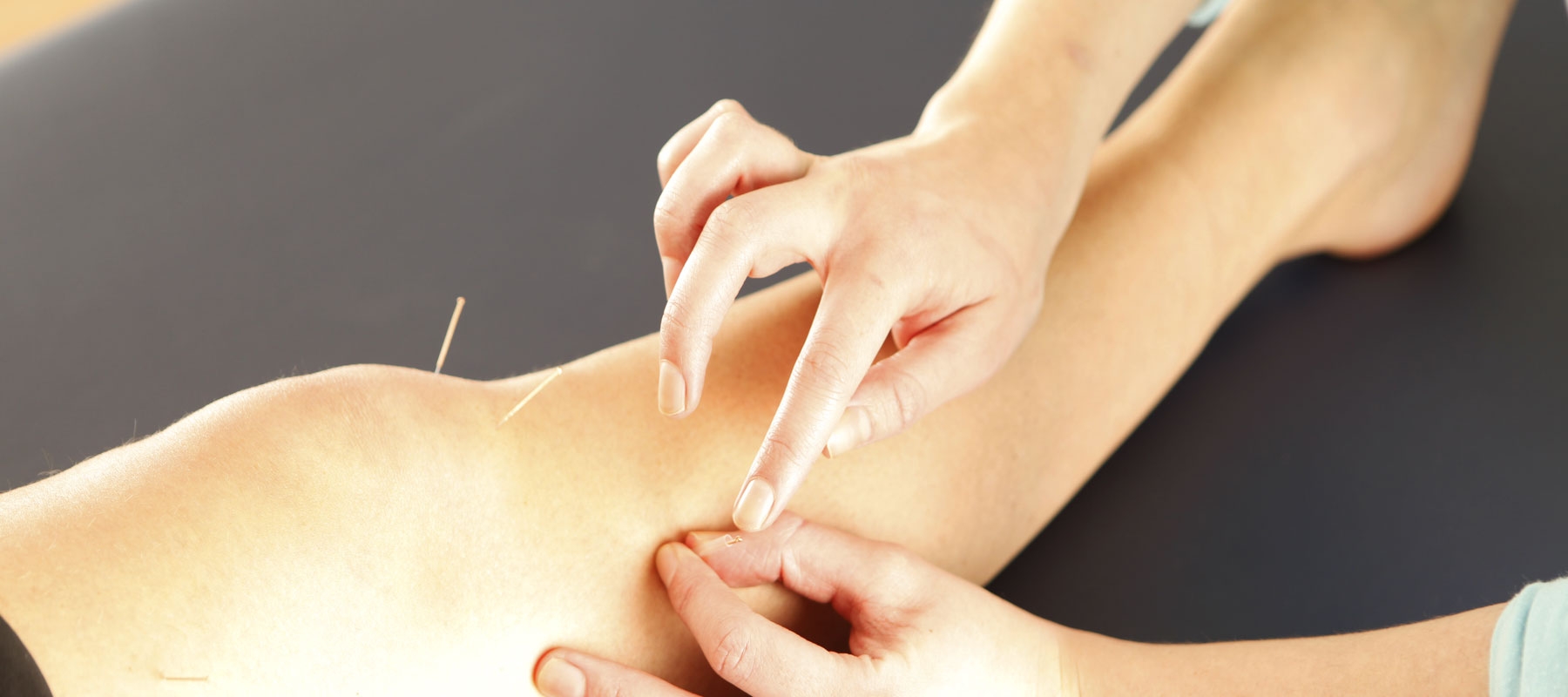Common Conditions
How Balanced Acupuncture and Dry Needling Works
What is it?
Acupuncture is one of the many skills used within physiotherapy as an integrated approach to the management of pain and inflammation which enhances rehabilitation.How does it work?
Acupuncture is a traditional Chinese Medicine technique that stimulates the body to produce its own natural pain and stress relieving chemicals. It promotes sleep by encouraging the production of melatonin and produces a sense of well-being by stimulating the release of serotonin. Acupuncture also activates nerve fibres which block out pain signals and helps to reduce the sensitivity of tender points in the body.What is it used for?
There is strong evidence to show Acupuncture can help with low back pain and headaches, but it can be used for a whole host of other health problems such as tennis elbow or pain arising from osteoarthritis.What will happen?
Very fine, stainless steel, single use needles are inserted into the skin and can be left for around 20 minutes. The Physiotherapist will select the best Acupuncture points for your condition, many of which be some distance from the area of pain. The number of needles used and time they are left in for will depend on your condition and symptoms.Most patients will receive a course of 4-6 sessions but in some cases, just one or two treatments may be enough. Your physiotherapist will use acupuncture in combination with other physiotherapy treatments. Your physiotherapist will be trained in Acupuncture through a course accredited by the Acupuncture Association of Chartered Physiotherapists.
Dry Needling
What is it?
Dry needling is based on Western Medicine and is used to stimulate trigger points within a muscle, which in turn causes the muscle to relax. Needling tend to be a bit deeper than with Acupuncture to ensure stimulation of the trigger point. At Balanced, dry needling can be carried out by Physiotherapists and Massage therapists.How does it work?
Inserting the needle into the trigger point will activate local nerves causing increased blood flow to the area and a relaxing effect on the muscle. Dry needling is anatomically very specific and the treatment is carried out in the affected area. In Acupuncture then needles may be inserted some distance from the pain depending on the condition.What is it used for?
Dry needling is used for trigger point release, pain relief and it can have a mechanical effect on scar tissue.What will happen?
A small number of fine, stainless steel, single use needles will be inserted into your skin usually just for a few minutes. You may feel a dull, not unpleasant ache as your therapist stimulates the needle and this ache may last for up to 48hours post treatment. Your muscles may also twitch when the needle touches a trigger point.Opening hours
Mon - Thurs 8.30am - 9pmFri - Sat 9am - 4pm
Please call to book a session on 0131 315 3105 or emailing info@balancededinburgh.co.uk. This is to ensure your therapist is trained in dry needling or acupuncture.
Prices
Appointments may also use other physiotherapy techniques in addition to acupuncture.Contact times are slightly shorter at the moment (around 5mins shorter than displayed) to allow us to make the treatment rooms safe for the next patient. This includes a clean down of all surfaces and equipment plus adequate ventilation of the room. Please make sure you book for adequate appointment time. Thank you for your understanding.
Acupuncture/Dry Needling is used by Physiotherapists during sessions
Initial £65 up to 55 minutes (Lead Clinician £70)
Follow Up £56 up to 40 minutes(Lead Clinician £57)
Follow Up £48 up to 25 minutes (Lead Clinician £49)
Acupuncture/Dry Needling is used by Some Massage Therapists during sessions
£56 up to 55 minutes
£48 up to 40 minutes
£40 up to 25 minutes

